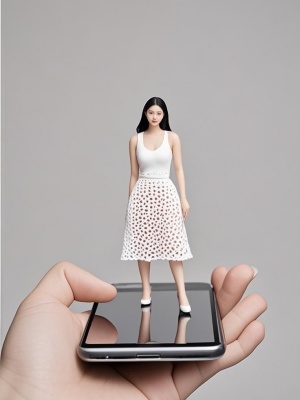Portrait Art Deco: The Timeless Elegance of Geometric Glamour
The Art Deco movement, which flourished between the two World Wars, revolutionized visual arts with its bold geometric patterns, luxurious materials, and streamlined forms. Portrait Art Deco, a distinctive subset of this style, transformed traditional portraiture into striking modernist masterpieces. This article explores the key characteristics, historical significance, and contemporary revival of Portrait Art Deco, offering insights for art enthusiasts and collectors alike.
The Essence of Portrait Art Deco
Defining Characteristics
Portrait Art Deco combines the human form with geometric abstraction, creating visually arresting compositions. Key features include:
- Strong, clean lines that emphasize facial structure
- Symmetrical or balanced asymmetrical compositions
- Bold color contrasts and metallic accents
- Stylized facial features with simplified planes
- Incorporation of decorative motifs like sunbursts and zigzags
These elements work together to create portraits that exude both modernity and timeless elegance. For those interested in transforming photos into Art Deco style, our portrait transformation guide offers practical techniques.
Historical Context and Influences
Emerging in the 1920s, Portrait Art Deco reflected the era's optimism and technological progress. It drew inspiration from diverse sources:
- Cubism's geometric fragmentation
- Ancient Egyptian art (following Tutankhamun's tomb discovery)
- African tribal masks and Japanese woodblock prints
- Machine aesthetics of the Industrial Age
This eclectic mix created a truly international style that dominated visual culture until the late 1930s. The Metropolitan Museum of Art provides excellent resources on this transformative period.

Master Artists of Portrait Art Deco
Tamara de Lempicka: The Quintessential Art Deco Portraitist
Polish painter Tamara de Lempicka (1898-1980) created the most iconic Portrait Art Deco works. Her portraits of aristocrats and celebrities featured:
- Chiseled, almost sculptural faces
- Dramatic lighting with sharp contrasts
- Luxurious fabrics and accessories
- A distinctive cool eroticism
Other Notable Practitioners
While Lempicka remains the most famous, other artists made significant contributions:
- Jean Dupas: Known for his elegant, elongated figures
- Demetre Chiparus: Created stunning bronze and ivory portrait sculptures
- Erté: Designed fabulous fashion illustrations with Art Deco flair
The Contemporary Revival of Portrait Art Deco
Digital Adaptations and AI Art
Modern technology has brought new life to Portrait Art Deco. AI-powered tools now allow anyone to transform photographs into Art Deco masterpieces. Our AI painting guide demonstrates how to achieve these stunning effects.
Contemporary artists are also reinterpreting the style for the digital age, maintaining the geometric precision while incorporating modern themes and techniques.
Collecting and Preserving Art Deco Portraits
Original Portrait Art Deco works command high prices at auction, with Lempicka's "La Musicienne" selling for $9.1 million in 2019. For collectors on a budget, quality reproductions and contemporary interpretations offer accessible alternatives.
Conclusion: The Enduring Appeal of Portrait Art Deco
Portrait Art Deco represents the perfect marriage of human expression and geometric perfection. Its bold visual language continues to inspire artists, designers, and photographers today. Whether through original works, digital recreations, or AI-generated interpretations, this distinctive style maintains its power to captivate viewers nearly a century after its creation.
For those interested in exploring Art Deco transformations of their own portraits, our gallery showcases stunning examples of what modern technology can achieve with this timeless aesthetic.